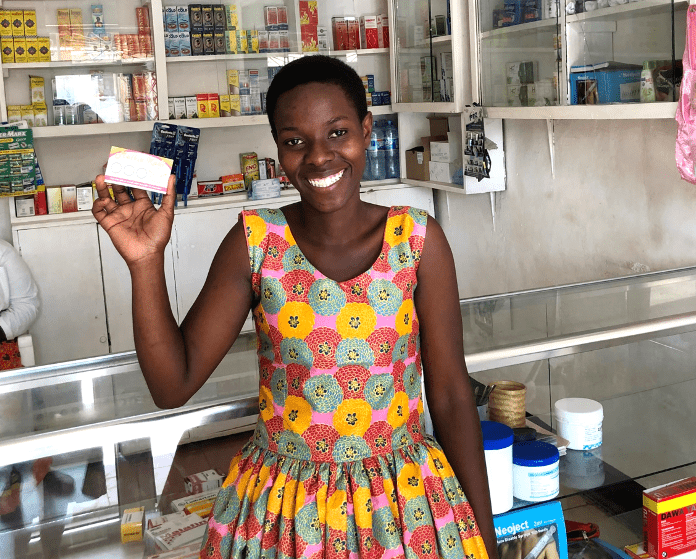For more than 30 years, UCSF has been a world leader in HIV/AIDS research and treatment. Under the auspices of the AIDS Research Institute, the Center for AIDS Prevention Studies, and IGHS’s Center for Global Strategic Information and Public Health Practice, UCSF researchers and clinicians take the lessons learned in San Francisco and implement them around the world. We conduct research, build capacity in scientists and healthcare personnel, improve data monitoring and use, provide technical assistance to governments, and more.
Projects
The COVID-19 pandemic clearly illustrated the need for a versatile public health workforce. Cal-PPH is a paid training and job placement program for early-career public health professionals to gain experience working at local health jurisdiction host sites. Cal-PPH fellows and host site preceptors receive ongoing support from the program team of public health professionals of three partner agencies.
Country of activity
United States
Partners
California Department of Public Health, UC Los Angeles
Funder
California Department of Public Health
IGHS Center
Center for Pandemic Preparedness and Response
More information
California Pathways into Public Health Initiative
VTA+ is a collaboration that rapidly trains, scales and sustains a workforce to respond to the COVID-19 pandemic and other diseases. It equips a diverse group of state and local health jurisdiction staff with the knowledge, skills, resources and community to provide crucial public health services.
Country of activity
United States
Partners
California Department of Public Health, UC Los Angeles
Funder
California Department of Public Health
IGHS Center
Center for Pandemic Preparedness and Response
Contact
Jess Celentano, MPH jess.celentano@ucsf.edu
More information
Virtual Training Academy
The UCSF Informatics Hub provides wide-reaching informatics solutions for numerous PEPFAR countries through the HISTAC project. Our large East African-based technical staff are developing and implementing streamlined open-source EMR functional packages (in OpenMRS) that can used for patient care, program monitoring, and donor reporting for HIV, tuberculosis, COVID-19, and other diseases. They also provide Ministries of Health with technical advice on patient management systems (client registries) and national health data dictionaries.
Countries of activity
Kenya, Uganda, Rwanda, Nigeria, Zambia, Thailand, Botswana, Ethiopia, Cambodia
Partners
University of Nairobi, Makerere School of Public Health
Funder
Centers for Disease Control and Prevention
IGHS Center
Center for Global Strategic Information and Public Health Practice
Contact
Michelle Moghadassi, MPH michelle.moghadassi@ucsf.edu
The SIQHIL consortium builds a country’s capacity to develop, validate and strengthen strategic information (SI) activities to guide prevention and treatment programs toward maximum impact. It adapts effective and proven innovations aligned with PEPFAR priorities into national health systems. SIQHIL has provided SI capacity development to ministries of health, multilateral organizations and implementing partners in 25 countries.
Countries of activity
current: Jamaica, Trinidad and Tobago, Sierra Leone, Tanzania; previous: Angola, Cote d’Ivoire, Kenya, Mozambique, Nigeria, Myanmar, Vietnam
Partners
UC Global Programs, CDC Atlanta, CDC Country Offices, ministries of health in each country
Funder
Centers for Disease Control and Prevention
IGHS Center
Center for Global Strategic Information and Public Health Practice
Contact
Kelly Young kelly.young@ucsf.edu
Since 2019, STRIPE HIV has played a vital role in maximizing the impact of HRSA’s investment and PEPFAR’s commitment to building health workforce capacity across Africa to achieve HIV epidemic control. Focused on strengthening interprofessional HIV education and improving the quality of care, STRIPE HIV supports academic and clinical educators to facilitate case-based workshops for interprofessional learners so the next generation of health workers is capacitated to deliver high-quality, collaborative, and evidence-informed HIV care.
Countries of activity
Nigeria, Ghana, Cameroon, Democratic Republic of the Congo, Zambia, Botswana, South Africa, Lesotho, Mozambique, Zimbabwe, Malawi, Tanzania, Kenya, Uganda, Ethiopia
Partners
AFREHealth, UCSF, select universities and institutions across sub-Saharan Africa
Funders
Health Resources & Services Administration, United States President’s Emergency Plan for AIDS Relief (PEPFAR)
Contact
Maeve Forster, MPH maeve.forster@ucsf.edu
More information
STRIPE HIV
Recency testing is a surveillance tool that can identify whether people who are newly diagnosed with HIV acquired an infection within the last 12 months or more than 12 months ago. Recency surveillance can help identify areas and populations where HIV transmission is actively occurring, which informs HIV prevention strategies and strengthens HIV program interventions. Since 2018, TRACE has supported ministries of health in several sub-Saharan Africa and Southeast Asia countries to pilot and scale up recency testing.
Countries of activity
current: Kenya, Namibia, Uganda, Vietnam; previous: Burundi, Malawi, Zambia, Cambodia, Thailand
Partners
UC Global Programs, CDC Atlanta, ICAP at Columbia University, CDC Country Offices, ministries of health in each country
Funder
Centers for Disease Control and Prevention
IGHS Center
Center for Global Strategic Information and Public Health Practice
Contact
Susie Welty, MPH susie.welty@ucsf.edu
Resources
Learn to use pivot tables and charts within the HIV Testing and Counseling (HTC) Data Use Tool.
Watch individual videos:
- Module 1: Introduction
- Module 2: What is Epidemiology, Surveillance and Strategic Information?
- Module 3: What is a Cascade?
- Module 4: Measuring linkage and retention
- Module 5: Other types of cascades
- Module 6: Interpreting cascade findings
- Module 7: Addressing the gaps in the cascade
- Module 8: Using other data sources for assessing the cascade
- Module 9: Communicating cascade data: Engaging stakeholders
- Full playlist

